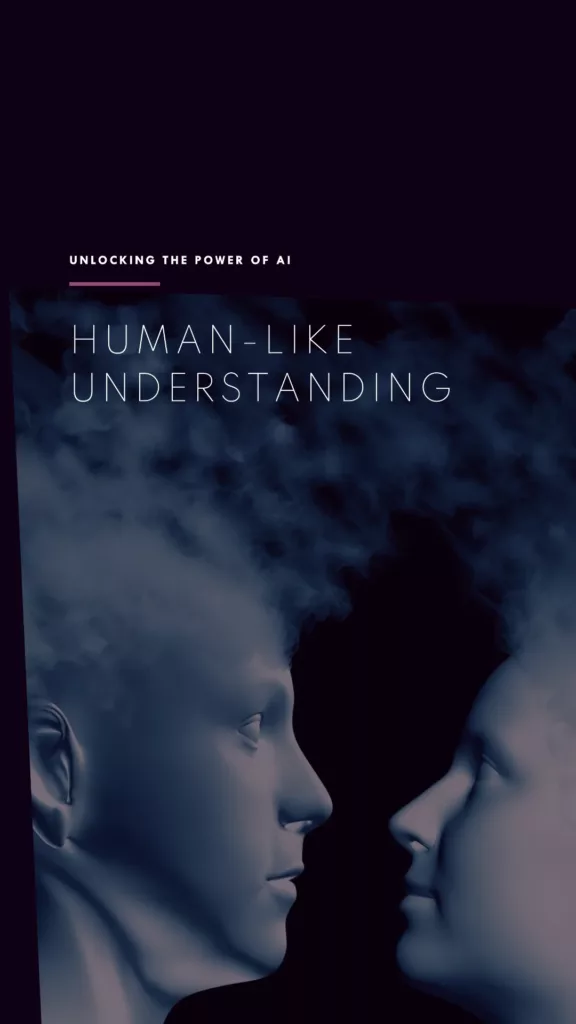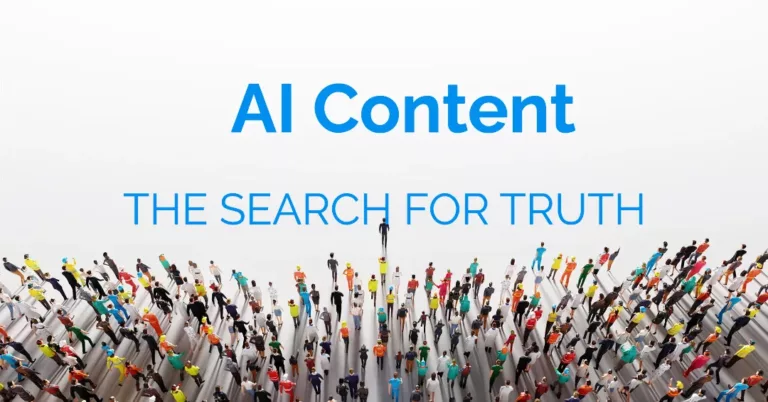I often ask my students during the opening session, Do You Know How to Eat an Elephant? Any massive task seems impossible if viewed all at once. Google is attempting this feat. Google is trying to index quality content and toss the AI Fluff that is being pushed its way.
This content explosion is mindboggling. While the number can fluctuate, on average Google indexes nearly 30 billion+ new and updated web pages daily as it crawls and monitors changes across the public web landscape. 30 Billion? Think about this number for a minute. Now think about how large this number is going to get when everyone is cranking pages and posts out with ChatGPT and his cousins.
Within these 30 billion new and updated pages, I’ve noticed a trend that is getting harder to ignore. AI-generated content is proliferating faster than “Tribbles” in Star Trek“.
This content is lacking in form and substance. In the words of Google’s John Mueller, is quite simply SPAM.
In April 2022 Google’s Head of Searches, John Mueller taped an interview on YouTube declaring that all AI-generated content is spam.
Now, Google claims that not all AI-generated content is spam. Sometimes, it’s helpful and not always trying to manipulate search rankings.
So Which is It?
It’s everywhere, from blogs to social media posts, and yes, it’s even making waves in my search engine results. Google is serving up “SPAM”. The core issue here isn’t the sheer volume of AI content. Some of the content is helpful, even though devoid of human input.

The real concern is with spam. That low-quality content that is packed with keywords but devoid of real value. You and I can spot this in an instant with the naked eye and we jump immediately. Google Algorithms, not so much, yet. So we get served instant SPAM without the side of eggs.
Scale and Speed
AI systems are capable of generating huge volumes of content at incredible speeds, far outpacing human creators. This massive output increases the likelihood of low-quality content slipping through in the indexing process. Anthropic describes what goes into Evaluating AI Systems.
Search Result Integrity
Quality and reliability should be paramount, but as the tide of AI-generated pieces grows, distinguishing the genuine from the artificial is becoming more arduous. Google, the vanguard of search engines, employs a sophisticated set of signals to assess content quality.

Search engines use signals from user interactions on Search Engine Results Pages (SERPs) to determine the most useful and relevant content for queries. Things like click-through rate (how often a result is clicked), dwell time (time spent on a page), and bounce rate (how quickly users leave a page) indicate quality.
However, spammers have figured out ways to artificially manipulate these signals to trick algorithms into thinking low-quality, spammy pages are actually high-quality content that users find useful.
For example, spammers may generate automatic clicks or use popup ads to keep users on pages for a longer time without actually consuming content. This distorts the signals search engines rely on.
So while user interactions continue guiding search algorithms, spammers are finding ways to fake these metrics undermining their ability to surface genuinely helpful information for searchers. It makes differentiation between genuine and deceptive content more difficult for search engines.
What’s the Danger Here

Genuine articles, research pieces, and insightful write-ups risk being drowned out in a sea of cleverly disguised spam. Google’s war on spam is multi-layered and ongoing because maintaining a clean, credible space for information is essential to their long-term survivability.
After all, if the lines between truth and artifice become blurred, we stand to lose the trustworthiness of one of our most valuable digital resources.
The challenge doesn’t end with detecting deceitful signals. Every click, every second spent on a site feeds into the vast data pool that Google draws on to refine its search algorithms.
But human curiosity is a wildcard. Users might click on a link driven by intrigue, only to bounce back quickly upon realizing the content’s irrelevancy.
These imperfect signals mislead the algorithms, an unfortunate reality that underscores the need for continuous refinement in how search engines analyze and understand content engagement.
In transitioning to the nuances of search algorithms, and the evolving nature of AI-generated content it is important to recognize the challenges of determining AI Content value.
A War of Manipulation – Clickbait or Worse
There exists an ongoing struggle between separating intentionally deceptive content (clickbait) from authentically relevant and helpful information. This challenge pitches the goal of serving users quality content versus cyber-deceptions.
Spammers are intentionally manipulating search result metrics to mislead algorithms. This is impacting more than just search rankings. It is calling into question the search engines’ validity and usefulness.
How many people have already left Google Search for ChatGPT research? Have you?
As the technologies involved in content creation and distribution continue to advance, questions are beginning to emerge. How can we ensure that we have access to information sources that prioritize reliability, transparency, and factual accuracy?
AI Content is Useful

The dynamic between artificial and human modes of content creation prompts ongoing reflection on how best to foster authenticity while also serving users’ needs. Some forms of AI Content are very useful, for example, auto-generated subtitles/transcripts. AI can listen to audio or watch videos and automatically create transcripts, making multimedia more accessible for deaf/hearing-impaired people or those who can’t view videos at a given time.
By pursuing solutions aimed at discerning authentic insights from potential deceptions, we support communities in distinguishing knowledge they can trust. The path forward values proactively addressing these challenges to help individuals find applicable truths that uplift and unite.
But Not Always!
Spam tactics undermine this by promoting deceptive pages over truthful sources.
Check out this article from Forbes – A New Era Of Deepfakes, AI Makes Real News Anchors Report Fake Stories
The issues raised here go beyond algorithms to how knowledge itself is created and shared online. Fostering authentic, transparent sources of information is important as new technologies change information ecosystems.
By pursuing solutions to distinguish genuine from misleading content, search engines aim to guarantee all people can readily access credible insights online.
This helps safeguard the reliability and fact-basis of knowledge in a landscape where new ways of creating and spreading misinformation are constantly emerging.
The Limitations of Current Search Algorithms
Even the most advanced technologies have their vulnerabilities, and this is true for Google’s search algorithms as well. Despite their constant Helpful Content Updates and refinements, these systems can still be misled. Content that appears to tick all the right boxes for accuracy and detail, but fails to truly serve the user’s needs, gets indexed.
AI-generated content often excels in providing factually correct information but occasionally misses the context that genuine human inquiry seeks.
Search algorithms offer a snapshot of relevance, an estimation of what might match the search query, but they don’t always get it right.
Perfect But Hollow
Content that strictly adheres to the rules can end up being technically perfect yet practically hollow. They’re like the echoes of what a real person would write – organized, factually accurate, yet lacking the intrinsic relevancy that separates helpful content from mere word assembly.

The core of Google’s mission is to connect users with what they are genuinely looking for. Algorithmic sophistication is undeniably high, but it’s not foolproof. The relevance factor is what often gets lost when AI is at the wheel without human guidance and oversight.
Evolving algorithms aim to understand not just the literal text users type into search bars but the meaning and intent behind them. The space between “answering a query” and “satisfying a need” is where true content quality lies, and it’s a nuanced space Google continuously strives to navigate.
The Human and AI Synergy
The delicate task of maintaining a trustworthy digital ecosystem calls for a harmonious blend of human insight and AI’s analytical prowess. Google’s journey towards enhancing search authenticity taps into this partnership, keenly focused on promoting content that truly benefits users.
Information or Persuasion

At the heart of this endeavor is the task of identifying user intent. Admittedly, discerning the motives behind AI-generated content poses a significant hurdle. Is a piece crafted to genuinely inform or subtly persuade? The distinction carries weight in retaining search query integrity.
Equally challenging is the interpretation of user interactions with content. A high click-through rate might suggest value, but it isn’t always a reliable metric. Curiosity can drive clicks (clickbait), sometimes leading users to less relevant material, despite initially promising indicators.
Enhancing Search Authenticity
In response to these complexities, Google leverages sophisticated machine learning tools like BERT and MUM. These models strive to peer beneath the surface, understanding context, and the intricate combination between language and intent.
To analyze context and nuance at scale, Google’s AI models are trained on vast datasets containing natural language interactions and their surrounding context.
They learn to identify subtle cues that provide meaning, such as certain phrases preceding or following other phrases. For example, word order and common word combinations can indicate sentiment, topic, or intent.
Human-Like Understanding
The models also analyze factors like website quality signals, third-party ratings, and feedback over time on how users interacted with similar content. By synthesizing these contextual elements, AI systems aim to develop a human-like understanding of implied meanings beyond direct translations of keywords.

Their assessments are then used by Google to rank content based on how likely it is to provide a helpful, meaningful experience for users. With continued improvements, this evaluation approach supports keeping search results focused on relevance and value.
Eating the Elephant
It’s a formidable task but one that Google pursues with vigor, using these technologies to sift through the noise and highlight genuinely helpful content.
I recognize that the road ahead isn’t just trying for search engines. It is a call to content creators and users to unite for a higher standard.
Google’s efforts reflect a commitment to evolve, but the human element—our collective choice to value truth and relevance—remains pivotal.
We stand as the gatekeepers of quality, interpreting the signals in tandem with AI, shaping the landscape of information, and, ultimately, winning the search for truth.
Setting Points is committed to helping you master niche blogging for retirement.
Not sure where to begin? The Wealthy Affiliate training program and community mentorship are your guide to becoming a great content creator.
Through niche blogging, many find the path to financial security in retirement.
Please let me know if you have any other questions about starting your niche blogging journey.








